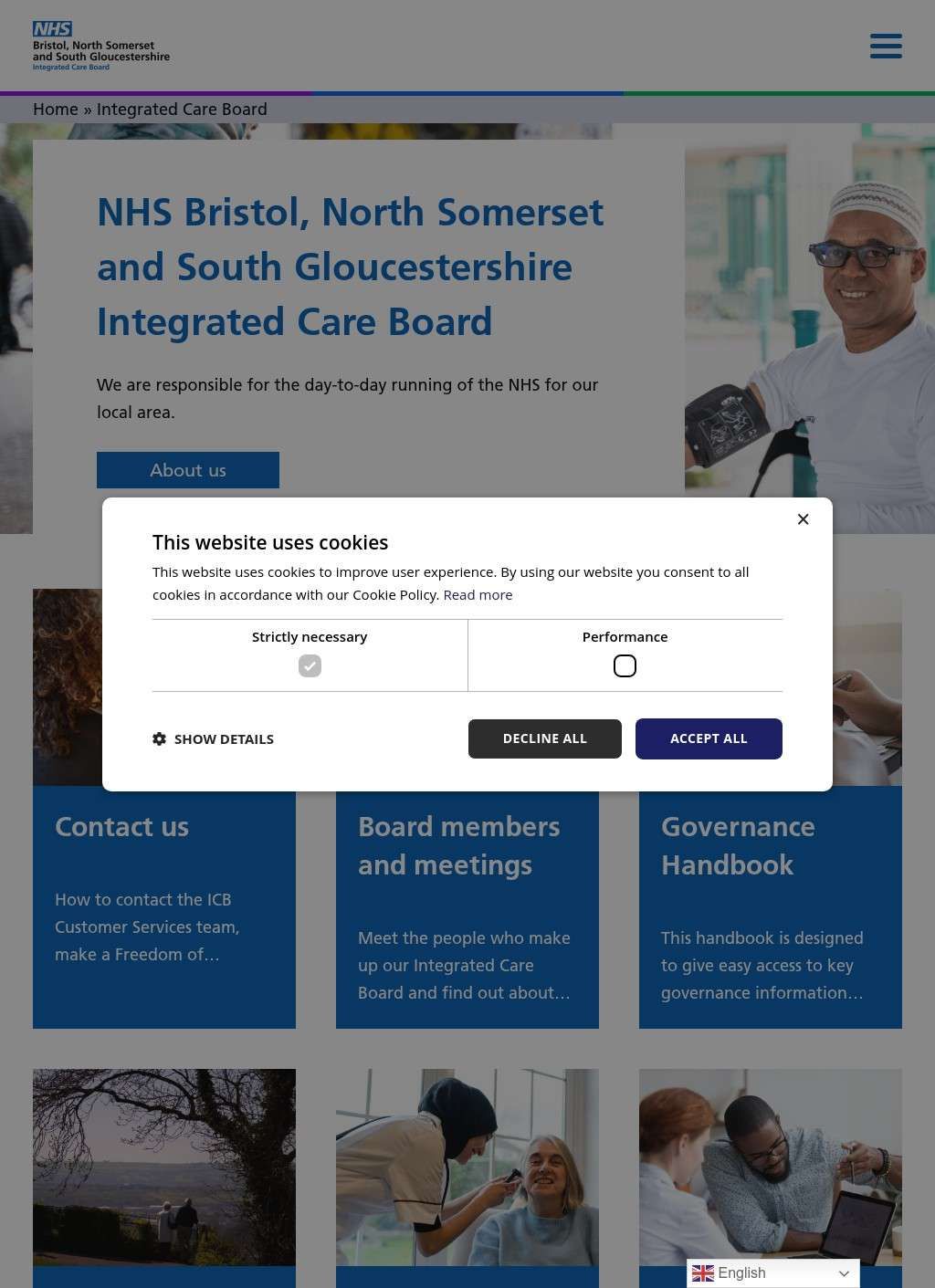Bristol, North Somerset and South Gloucestershire Integrated Care Board serves as the NHS's local leadership body for a population exceeding one million across the West of England. Established in July 2022 replacing former Clinical Commissioning Groups, the ICB coordinates healthcare delivery through strategic planning, service commissioning, and budget management. Operating from offices at Three Six Zero Bristol, the organization brings together NHS providers, local authorities, and community partners in pursuing integrated care that addresses both health needs and underlying social determinants.
The ICB oversees a complex healthcare landscape including two major acute hospital trusts – University Hospitals Bristol and Weston, and North Bristol NHS Trust. These provide everything from emergency care to specialized treatments across multiple sites including Bristol Royal Infirmary, Southmead Hospital, and Weston General Hospital. Community services deliver care closer to home through district nursing, therapy services, and community hospitals. Mental health provision comes through Avon and Wiltshire Mental Health Partnership Trust, offering services from primary care therapy to crisis intervention.
Primary care forms healthcare's foundation across the region, with over 80 GP practices serving diverse communities from inner-city Bristol to rural North Somerset. The ICB supports practices through funding, workforce development, and service transformation initiatives. Primary Care Networks group practices to deliver enhanced services like extended hours access and specialist clinics. Digital innovations including online consultations and remote monitoring help manage increasing demand while improving patient convenience. Dental, pharmacy, and optometry services complete primary care provision.
Health inequalities present persistent challenges across the ICB's territory. Life expectancy varies by up to ten years between affluent and deprived neighborhoods. The ICB's strategy prioritizes reducing these gaps through targeted interventions and community partnerships. Initiatives address social factors influencing health – housing quality, employment, education – recognizing health extends beyond medical treatment. Population health management uses data analytics identifying at-risk groups for proactive support before crises develop.
Financial stewardship involves managing an annual budget exceeding £2 billion across all NHS services. Resource allocation balances acute hospital needs against investments in prevention and community care. The ICB drives efficiency through pathway redesign, reducing unnecessary hospital admissions while improving patient outcomes. Value-based commissioning focuses spending on interventions delivering greatest health gains. Despite significant pressures from aging populations and rising treatment costs, the commitment to free healthcare at point of use remains absolute.
Integration stands central to the ICB's vision for healthcare transformation. Breaking down barriers between physical health, mental health, and social care creates seamless patient journeys. Integrated teams bring together professionals from different organizations working toward shared outcomes. Digital systems enable information sharing across providers, reducing repetition while improving care coordination. The Integrated Care Partnership, including local council leaders, ensures health services align with broader community needs.
Innovation and improvement drive service development across the system. The ICB supports research through partnerships with local universities and the West of England Academic Health Science Network. Quality improvement programs spread best practices between providers. Digital transformation extends from electronic patient records to artificial intelligence supporting diagnosis. Social prescribing connects patients to non-medical support through community activities, recognizing wellbeing's broader dimensions beyond clinical treatment.
Public engagement ensures services reflect community needs and preferences. Healthwatch organizations provide independent patient voice, while various forums enable specific group input. The Women's Health Steering Group exemplifies targeted engagement, addressing inequalities in areas like menopause care and contraception access. Regular consultations on service changes maintain transparency despite difficult decisions. Through coordinated planning, strategic investment, and genuine partnership working, Bristol, North Somerset and South Gloucestershire ICB strives to create a sustainable health system meeting current needs while building resilience for future challenges in this diverse and dynamic region.
